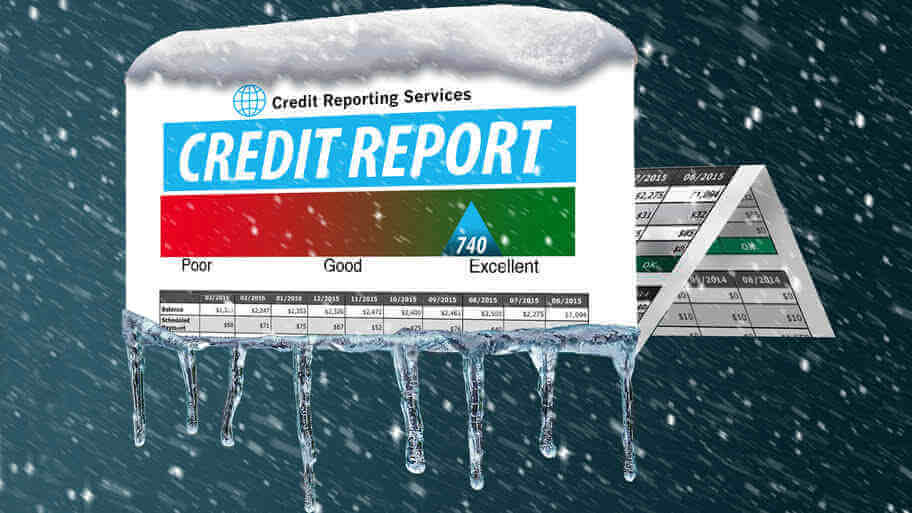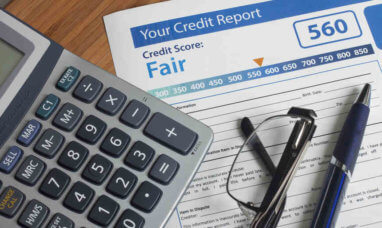Recently there has been an increase in cases of identity theft, creating the need for credit protection because your credit scores have a huge impact on your financial health. One way to protect your credit is through a credit freeze.
A credit freeze comes in handy when you want to protect your credit from unauthorized access. In this article, we’ll discuss everything you need to know to freeze your credit. Read on to learn more about how a credit freeze works, when to get a credit freeze, and the cons of freezing your credit.
Let’s dive in!
What Is a Credit Freeze?
Let’s begin by defining a credit freeze. A credit freeze is a security measure that protects the sensitive data on your credit file from access without your consent.
Freezing your credit doesn’t mean your credit reports are entirely off-limits. This is because any companies you previously had a credit relationship with, as well as government entities seeking to execute a court order or search warrant, can still access your credit details even with a freeze in place.
How a Credit Freeze Works
So, how does a credit freeze work? A credit freeze works by blocking access to your credit reports without your consent. However, there’re some exceptions, such as government entities or companies with which you have an existing credit relationship.
Typically, after freezing your credit with the three major credit bureaus, Equifax, Transunion, and Experian, your freeze can stay in place as long as you want it to. This means you can unfreeze your credit whenever you want to, such as when applying for a new credit card or loan.
Freezing and unfreezing your credit is now simple and free, thanks to the 2018 law changes that scrapped off the previous fee charged for credit freezing and unfreezing.
Regardless of how long the credit freeze stays in place, it doesn’t have an impact on your credit.
How to Freeze Your Credit
Having understood what a credit freeze is and how it works, let’s now look at how to freeze your credit. To freeze your credit, you’re personally required to contact each of the three major credit bureaus, and here’s how to reach each of them:
Here, you’ll be required to provide your social security number, date of birth, and any other personal information confirming your identity. Once your credit is frozen, it secures your credit report until you lift the freeze.
TransUnion and Experian require you to set a PIN for use when freezing and unfreezing your credit. However, Equifax doesn’t demand a PIN.
How to Unfreeze Your Credit
If you need to unfreeze one or all the three credit reports may be to apply for a loan, a new credit card, or out of personal reasons, you’ll need to contact the bureau(s). For TransUnion and Experian, you’ll be required to provide the PIN you set up earlier when freezing your credit.
You can request to unfreeze your credit by phone, mail, or online. A phone or online request is often processed faster, taking about an hour, while a request through mail can take up to three business days.
How to Freeze Your Child’s Credit
Did you know that as a parent or a guardian, you can freeze your child’s credit if they’re under 16? If you request to freeze your child’s credit, the credit bureau must first create a credit file for the child then proceed to freeze the credit.
You will be required to provide the child’s birth certificate and proof that you have the authority to freeze the child’s credit.
FAQs
Does Freezing Your Credit Affect Your Credit Score?
No, a credit freeze doesn’t affect your credit score in any way.
Should You Freeze Your Child’s Credit?
Yes. It is vital to freeze your child’s credit to prevent any identity theft on their credit.
What Does FP on Credit Report Mean?
FP is a business code that indicates a personal loan company.
How to Freeze Interest on Your Credit Card
If you want to freeze the interest on your credit card, you should request it from your credit card company. But you should know that there is no legal obligation for the company to agree to freeze the interest charges.
When to Get a Credit Freeze
You can get a credit freeze if you don’t actively use your credit card on shopping or don’t plan on applying for a loan anytime soon.
It’s also advisable to freeze your account if you think that your personal data may have been breached and that it may lead to identity theft.
Cons of a Credit freeze
Freezing your credit pros and cons are many, and here’s a rundown of the top cons:
-
-
- It gives you a false sense of security because even with a freeze, you may still be vulnerable to fraudulent charges on an existing credit account if it has been compromised. Besides, you may be susceptible to tax refund and health care scams involving your social security. So, a credit freeze doesn’t entirely protect you from fraud, and you should still check your monthly statements carefully to detect any signs of fraudulent activities.
- It can sometimes be inconvenient as you always have to remember to lift the freeze whenever you want to apply for a credit card or are shopping for a new loan.
- You may incur increased insurance rates if your state allows the use of credit information to set these rates. Here, if the insurer can’t access your credit details, they may fail to give you the discounts a good credit score entitles you to. In this case, it’s advisable to contact your insurance agent to find out whether you need to unfreeze your credit.
- It complicates creating a MySocialSecurity account used to track earnings and also estimate future benefits. And while you can still create this account with a frozen credit, you’ll need to visit the social security office in person.
-
Credit Freeze or Credit Lock?
Both the credit freeze and credit lock prevent access to your credit report without your consent. The main difference between a credit freeze and a credit lock is that a credit freeze is mandated by federal laws and is free.
On the other hand, a credit lock is offered voluntarily by a credit bureau, and you may be charged a fee for it.
The Equifax and TransUnion credit locks are free, but the Experian credit lock comes as a part of a paid subscription package.
And while a credit lock boasts convenience (being opened or closed with a finger swipe on an app), it offers few legal protection than a credit freeze.
Who Can Access Frozen Credit Reports?
A credit freeze makes your credit report inaccessible to most people but with a few exceptions. They include:
-
-
- You can still access your credit records or free annual credit reports even with a credit freeze
-
-
-
- Your current creditors and debt collectors still have access to your credit report despite the freeze
- Marketers can also access your credit report to send you offers and discounts
- In some circumstances, the government and child support agencies can have access to your credit report.
- An employer or a potential employer can check your credit report, although the version available to them omits some sensitive details.
-
Bottom Line
A credit freeze can go a long way in safeguarding your credit against unauthorized access, reducing cases of fraud and identity theft. The information discussed above will help you understand all the basics of a credit freeze.
Take action and freeze your credit today to safeguard it against identity theft.
Featured Image: Megapixl








